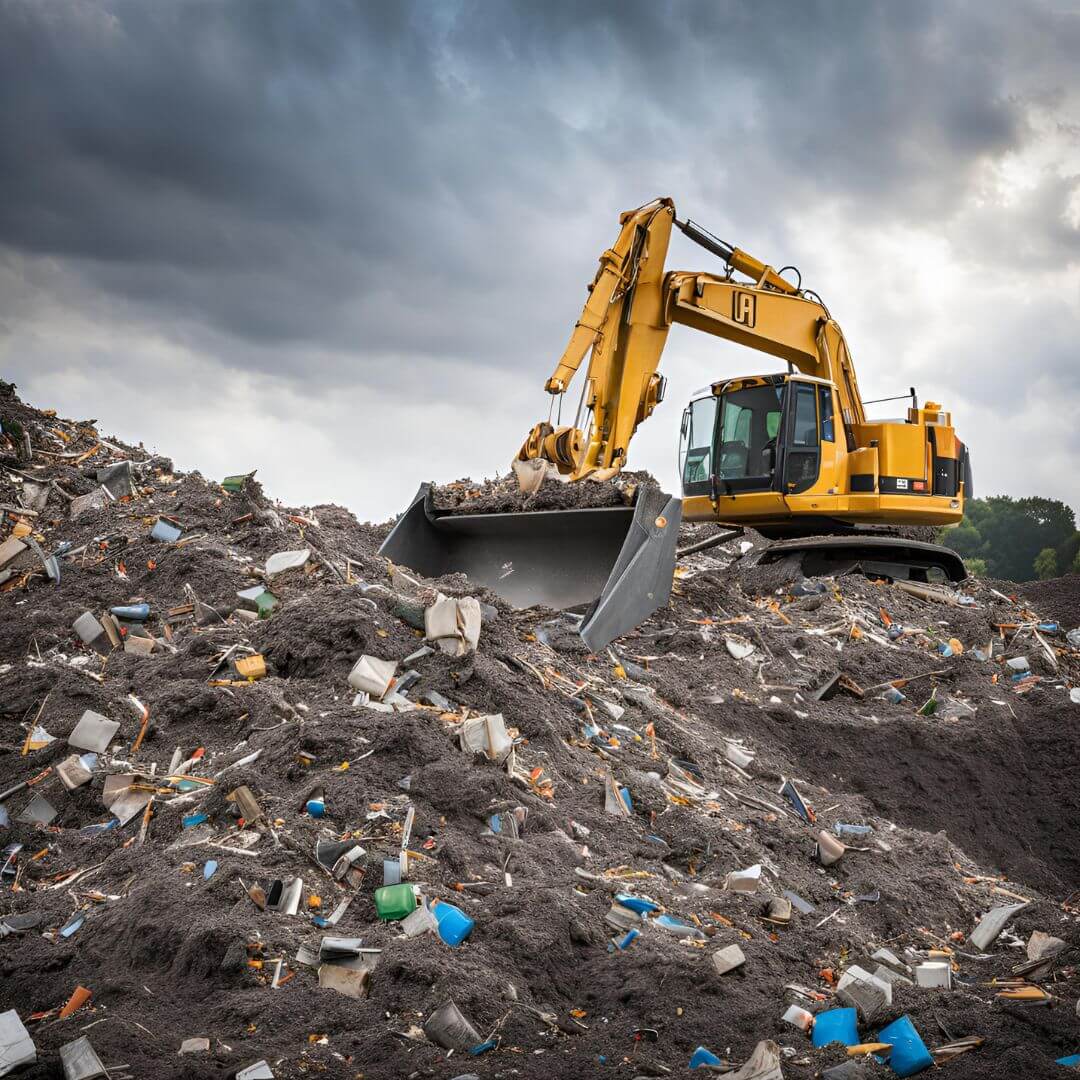Construction waste disposal in Australia is an industry that reflects the importance of the industrial side of our economy. Its size is proportional to the continued development of construction across Australia.
Understanding the construction waste disposal systems sheds light on both Australia’s waste management systems and its construction industry. Additionally, industrial waste off-shoots like demolition waste can only be understood within the larger construction industry.
This blog explores construction waste disposal in Australia. The information is helpful for anyone interested in understanding both the waste and the construction and demolition industry.
What is Construction Waste
Construction waste is anything that is disposed of, no longer wanted, or in excess during the building process. Common types of construction waste include concrete, wood, metals, and plastics.
Certain types of construction waste are potentially harmful. Hazardous materials such as asbestos was a once common construction material that is extremely harmful to human health if it is not disposed of correctly.
Additionally, improper disposal of paint and other building solvents can negatively affect the surrounding environment. Such building materials can contaminate nearby water streams. They can also cause soil contamination. Hiring a professional waste management team ensures that such risks are minimised.
Construction Waste in Australia
Construction and demolition waste in Australia accounts for roughly 40% of the total waste generated in the country. Much of this waste ends up in landfills or dumpsites.
Construction waste disposal requires the use of a dedicated waste management team like Cleanway due to the complexities of the disposal process. Such companies consider three important waste disposal considerations.
Responsible Construction Waste Disposal
Responsible construction waste disposal entails three distinct considerations. Companies like Cleanway use them to ensure that their waste disposal systems are ethical and efficient.
Environmental Protection
Environmental protection is a cornerstone of the waste management industry. This is especially important when it comes to potentially harmful construction materials. Improper disposal can cause major environmental harm.
Companies like Cleanway are certified by the Australian Environmental Protection Agency (EPA). Their waste solutions follow the environmental best practices of the industry. This helps to minimise the potential damage which improper disposal can cause.
Resource Recovery
Resource recovery is a waste disposal technique that seeks to recover valuable materials from waste. These materials are then reused in other products. Overall, this helps to prevent the overuse of landfills and dumpsites.
Construction materials are expensive. While some materials cannot be used, many can find a new use in various ways. Old timber and glass is often recycled and used for smaller building projects, for instance.
Cost Savings
Following the correct construction waste disposal methods ensures that the most efficient practices are followed. Utilising methods like resource recovery saves costs and resources in the long run.
This is a great example of why it is important to contact an approved waste management team. The money spent on their expertise ensures that the correct procedures are followed, and they can help to save money.
Construction Waste Disposal Best Practices
Construction waste disposal best practices follow many of the same principles that fuels the general waste management industry. This generally includes minimising the total amounts of waste produced in the first place, as well as utilising the most efficient waste streams available.
Waste Audits
Waste audits are a great way for a company to have their current waste systems assessed for potential shortcomings. This gives them the opportunity to make their disposal systems more efficient and environmentally friendly.
Contact Cleanway to book your waste audit here.
Waste Minimisation
Waste minimisation is more complex than it might sound. It involves minimising waste during the production process. This means that less materials need to be disposed of when the product is no longer needed.
Recycling
Recycling remains a useful way to manage various forms of waste. Recyclable materials can be used during the construction and demolition processes. Additionally, they can also be made into recycled materials at an average recycling centre.
Education
Educating people on the proper ways to dispose of construction and demolition waste will help them to make more informed waste management decisions. Additionally, this will help to incentivise them to dispose of waste in a same and secure manner.
Green Materials
Using green materials makes the disposal process easier. When a waste produced is designed for recycling, for instance, the entire waste system will be far easier to manage. Environmental sustainability often begins at the production stage.
Construction and Demolition Waste
Construction and demolition waste are often discussed in tandem with one another. This is because both usually consist of the same raw materials and construction debris. Additionally, resource recovery services use both construction and demolition waste materials.
Both construction and demolition waste can contain valuable resources that need appropriate disposal techniques. Both can be safely stored with a skip bin. Renovation waste and excavated material are common examples of both construction and demolition waste.
Construction Waste Disposal Services
Construction waste removal services handle a variety of rubbish removal services across the country. They often work with municipal waste collection services to ensure a safe and efficient construction rubbish removal process.
Companies like Cleanway can provide comprehensive construction waste disposal services to clients across the country. We also work in a variety of industrial sectors to provide services such as Non Destructive Digging and Hydro Excavation. This expertise places us on the cusp of both waste management and industrial activities.

